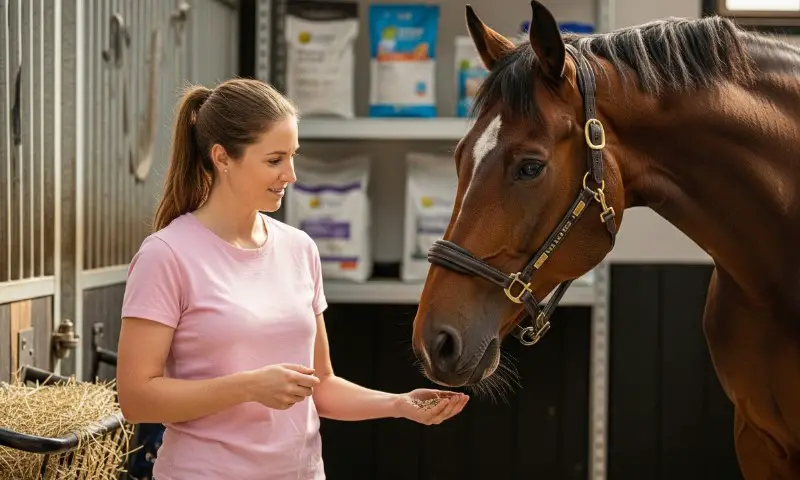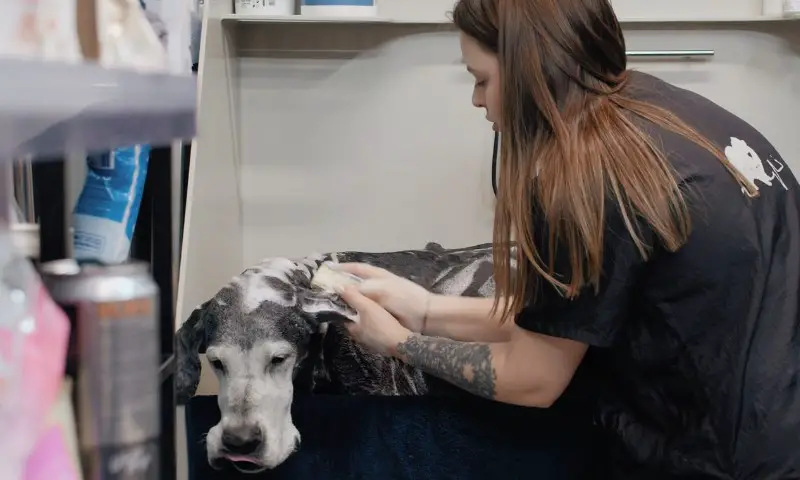For people who truly love being around animals, choosing the right career is more than just about making a living; it is about building a life that feels rewarding every day.
Across industries, there are dozens of ways to turn a passion for animals into a profession, but not all options offer the same level of stability, salary potential, or daily interaction with animals.
Some careers demand years of higher education and specialization, such as veterinary medicine or zoology, while others emphasize hands-on skills and direct care, like grooming or animal control.
The demand for skilled professionals in this field is steady and, in some areas, growing. The U.S. Bureau of Labor Statistics projects veterinary jobs alone to grow by about 20% from 2022 to 2032, much faster than the average for most occupations.
Similarly, companion animal industries such as pet nutrition, grooming, and training continue to expand as more households treat pets as family members. Globally, the livestock and animal feed sector is valued in the hundreds of billions of dollars, which creates opportunities for specialists in animal nutrition, genetics, and health.
1. Veterinarian

Veterinarians remain the most recognized animal professionals. They diagnose diseases, perform surgeries, prescribe treatments, and guide preventive health care for a wide variety of species.
While most people imagine veterinarians working with dogs and cats in small clinics, the field is much broader; quine vets specialize in horses, food-animal vets manage herd health, and exotic vets focus on reptiles, birds, and zoo animals.
- Education: Requires a Doctor of Veterinary Medicine (DVM), which typically involves 8 years of higher education (4 years undergraduate + 4 years veterinary school). Licensing exams are mandatory in most countries.
- Work Settings: Private veterinary practices, farms, zoos, laboratories, animal hospitals, and even government agencies.
- Salary Range: In the U.S., $90,000–$150,000 annually on average, with specialists earning more.
The career is demanding, with long hours and emotionally tough cases, but the ability to directly save and improve animal lives makes it highly rewarding.
2. Veterinary Technician or Technologist
Veterinary technicians and technologists act as the backbone of animal hospitals. They handle lab tests, take X-rays, assist during surgeries, monitor anesthesia, and explain treatment plans to pet owners.
Unlike veterinarians, they do not make diagnoses or perform major surgeries, but their technical expertise ensures that clinics run smoothly.
- Education: Veterinary technicians usually complete a two-year associate degree, while technologists often hold a four-year bachelor’s degree.
- Work Settings: Veterinary clinics, animal hospitals, emergency care centers, and research labs.
- Salary Range: $35,000–$50,000 annually, depending on location and specialization.
3. Animal Nutritionist

Nutrition is a cornerstone of animal health, and specialists in this area ensure that diets meet the biological and performance needs of different species.
Animal nutritionists may design feeding programs for livestock to improve growth efficiency, develop pet food formulas for dogs and cats, or work with zoos to meet the dietary needs of exotic species.
- Education: At least a bachelor’s degree in animal science, agriculture, or biology, though many roles prefer a master’s or PhD. Advanced coursework is often required to satisfy animal nutritionist education requirements.
- Work Settings: Livestock farms, feed manufacturing companies, zoos, veterinary schools, or as independent consultants.
- Salary Range: $60,000–$100,000, with higher pay in industrial or research-based positions.
This career suits people who love the science side of animal care and want to make a lasting difference by preventing disease and promoting longevity through diet.
4. Zoologist or Wildlife Biologist
@ganyahgold so you become a wildlife biologist 🫶🏻🌎🫶🏻
Zoologists and wildlife biologists are researchers who study animals in their natural habitats or in controlled settings.
They may track endangered species, analyze ecosystems, or research how human activity impacts wildlife populations. Their work directly informs conservation strategies and government policies.
- Education: Requires at least a bachelor’s degree in biology or wildlife science, though advanced roles usually demand a master’s or PhD.
- Work Settings: National parks, conservation NGOs, universities, research institutes, and environmental consulting firms.
- Salary Range: Typically $50,000–$100,000 depending on project funding and seniority.
5. Animal-Assisted Therapist

Animals can be a powerful part of healing for people with physical, emotional, or developmental challenges.
Animal-assisted therapists integrate trained animals, often dogs or horses, into treatment programs for patients recovering from trauma, managing anxiety, or living with disabilities.
Equine-assisted therapy is especially recognized for helping children with autism and veterans with PTSD.
- Education: Requires a degree in psychology, counseling, occupational therapy, or social work. Additional certifications in animal-assisted therapy are needed.
- Work Settings: Rehabilitation centers, hospitals, schools, and private practices.
- Salary Range: $45,000–$80,000 annually, depending on specialization.
This path is ideal for people who are as passionate about helping humans as they are about working with animals.
6. Animal Control Officer
Animal control officers serve a critical role in public safety and welfare. They rescue injured animals, respond to complaints about dangerous pets, and enforce laws against abuse and neglect.
Officers often coordinate with shelters to rehome strays or investigate cruelty cases.
- Education: Usually requires a high school diploma, though many regions prefer candidates with an associate degree in criminal justice, biology, or animal sciences. Training in law enforcement or animal handling is common.
- Work Settings: City or county governments, police departments, and animal shelters.
- Salary Range: $35,000–$60,000 depending on jurisdiction.
It is a challenging job, sometimes dealing with dangerous situations, but it provides a direct way to improve animal welfare in communities.
7. Pet Groomer or Trainer

Not every animal career requires formal degrees. Pet groomers and trainers build businesses by providing essential services for companion animals.
Groomers ensure pets are healthy, clean, and comfortable, while trainers teach obedience, improve behavior, or prepare animals for specialized tasks such as therapy or service work.
- Education: No formal degree required, but certification programs are widely available and improve career prospects.
- Work Settings: Grooming salons, training facilities, kennels, or self-employed businesses.
- Salary Range: Highly variable, from $30,000 for entry-level workers to over $70,000 for established professionals with loyal clientele.
This option suits entrepreneurial individuals who want independence while spending every day directly with animals.
Conclusion
Loving animals is only the starting point; turning that passion into a sustainable career means choosing the path that matches your skills, education goals, and lifestyle. From highly technical roles like veterinary medicine and animal nutrition to hands-on jobs like training, grooming, or animal control, there are opportunities at nearly every level of education and experience. What unites all these careers is the chance to make a real impact on animal health, welfare, and human-animal relationships. For those ready to commit, the reward is a career that feels less like work and more like a calling.

